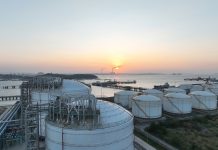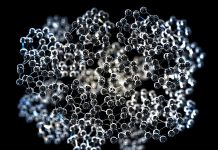AIRC is involved in financing cancer research in Italy, helping researchers produce quality projects. Professor Federico Caligaris Cappio explains
The AIRC mission is ‘Finding the Cure of Cancer through Research’. Since its inception, AIRC aims to fund the best Italian scientists involved in cancer research with regular and timely calls for grant applications. Every AIRC call is set out in February, the evaluation is finalised in autumn and the board of trustees deliberates in mid-November, about the financing of the best ranked projects, so that the funds become available by the end of the year. This enables every research project to start in January. Accordingly, the timeline of AIRC calls has become a precious companion to all Italian scientists involved in cancer research. Every project submitted to AIRC for consideration is evaluated through the peer review system with at least 2 international reviewers selected from a panel of approximately 600 international investigators working abroad and a member of the Comitato Tecnico Scientifico (CTS), the Italian equivalent of a study section. This is made up of rotating scientists, selected among the most appreciated Italian scientists at international level. Three reviewers for any application are chosen on the basis of their competence and absence of conflict of interest.
Avoiding routinisation
In recent years, to keep up with the pace of science, as well as improving the efficacy of its efforts to avoid the risk of routinisation AIRC has launched the special programmes 5 x mille.
These are large well-funded multi-unit programmes, financed through the revenues of 5 x mille donations, i. e. the donations are from every Italian citizen who can decide to allocate to charities when paying their yearly taxes. The projects were structured as “from the bench to the bedside”, the “bedside” being considered a must and not merely representing a perspective development of the research. Therefore, the actual transfer of knowledge to the clinical setting was considered paramount towards the feasibility. It also has to be underlined that AIRC gave priority (among comparably outstanding proposals), to those proposals in which explicit plans were made to enrol young physician scientists, specifically dedicated to the project and expected to be involved simultaneously in the lab and in the clinical setting. The 2010 5 x mille special programme was on molecular clinical oncology, the 2011 programme on innovative tools for cancer risk assessment and early diagnosis. More than 1,000 scientists, including basic, translational and clinical investigators, have been involved in this major endeavour, whose results have significantly contributed to the international competitiveness of the Italian cancer research and increased the international notoriety of Italian cancer scientists, in terms of publications in highly ranked journals. Importantly the findings obtained have also led to the development of novel instruments of early diagnosis and treatment possibilities that have raised great interest in the international community.
Creating a research ecosystem
Perhaps the most important result of this funding system has been the development of a creative ecosystem of Italian scientists who have learned that working together is more productive, have exploited the concept that excellence attracts excellence and have nurtured a number of young investigators. This ecosystem has also helped to smooth the notorious asymmetry that hinders the development of cancer science in areas such as the South of Italy, as well as cities and/or institutions which are too small to allow the building up of a local critical mass. Though excellent science is not equal in its distribution, excellence must prevail if we wish to preserve the trust of our donors and overcome the politically sensitive issue of geographical distribution.
Taking into account the results attained so far, AIRC is now planning to launch a third 5 x mille programme whose aim is to better understand the fundamental mechanisms of metastatic process especially bearing in mind the goal of developing novel biology-based therapeutics to treat metastatic disease.
As Sandra J Horning recently pointed out in a lucid Science editorial, “this is a time of opportunity for successful treatment of cancer. However, in order to be successful a coordinated effort is required.”
Exploiting its mission of excellent science and achieving the goal of developing nationwide collaborations AIRC is leading the way to such coordinated effort in Italy.
Professor Federico Caligaris Cappio
Scientific Director
AIRC – Italian Association for Cancer Research











